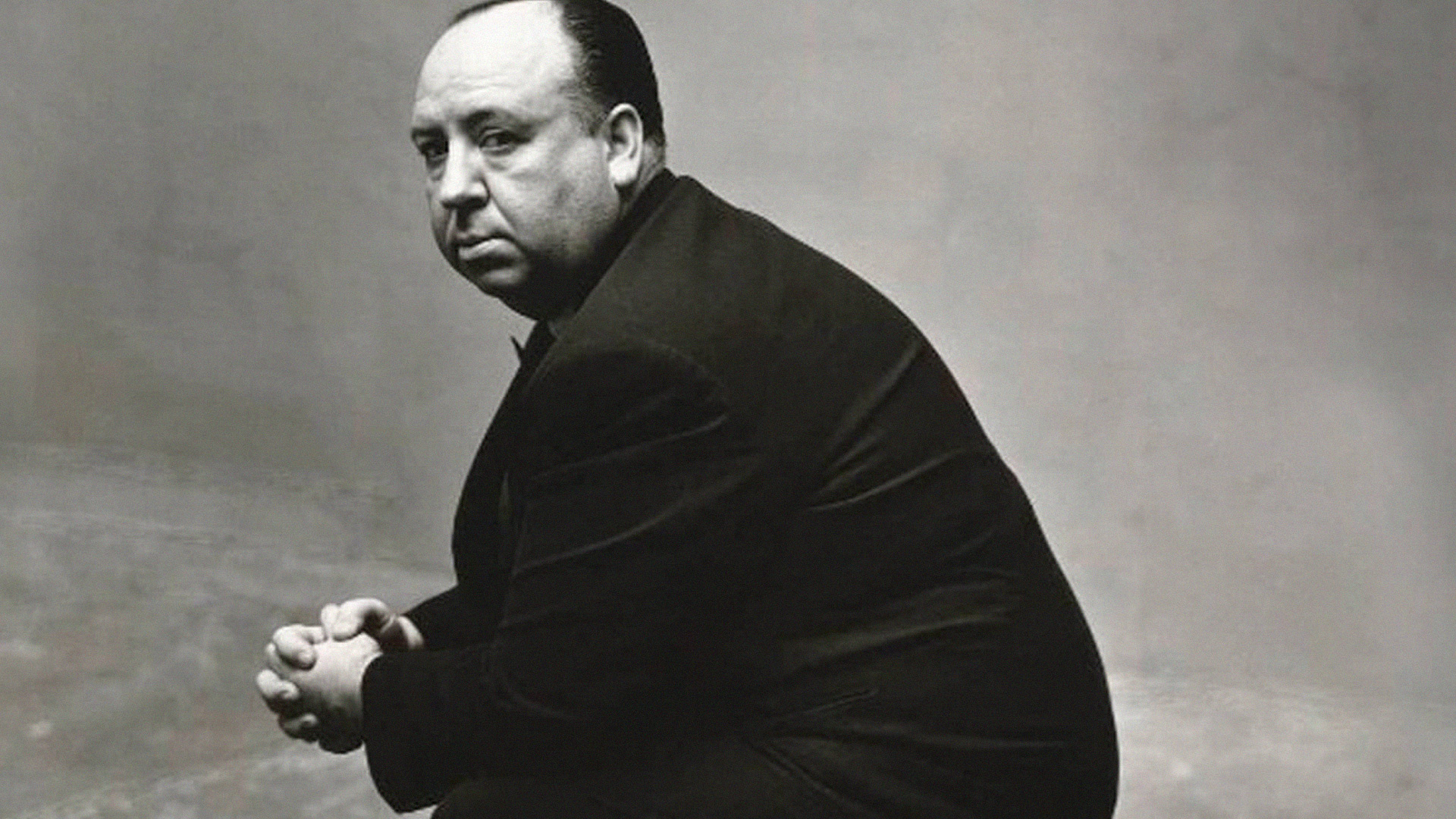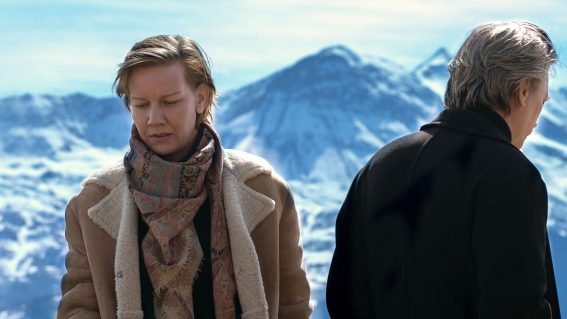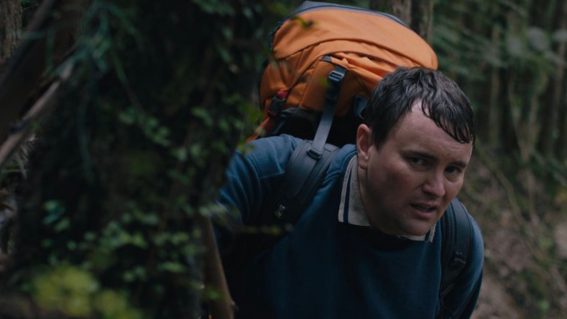NZIFF 2023 mini-reviews (M – R)
Our Whānau Mārama: New Zealand International Film Festival mini-reviews.

Our writers share their thoughts on this year’s Whānau Mārama: New Zealand International Film Festival selections.
This year’s festival features plenty of gems – check out what we’re watching, and keep checking this page for the latest mini-reviews, updated throughout the festival.
All 2023 mini-reviews:
Latest reviews | A – E | F – L | M – R | S – Z
Mami Wata
Part family drama, part fable, with a dash of action movie for good measure, Mami Wata lures you in with its gorgeous black and white imagery (seriously, every frame is strikingly composed), then unfurls a plot that’s tender and surprising. Drawing a balance between contemplative and propulsive, it’s finely tuned, and grows more mythic and moving as it goes. TONY STAMP
#Manhole
A lithe wee thriller that starts off relatively grounded then turns increasingly gonzo, #Manhole (yes, there’s a reason for the hashtag) proves there’s plenty of juice left to be wrung from the person-trapped-in-confined-space playbook. Slight but delightfully unpredictable, and anchored by a lead performance by Yuto Nakajima that ends somewhere very different to where it begins. TONY STAMP
A fun premise, endearing performances and a few really interesting ideas make this an enjoyable watch, however that joy is sullied by one unacceptably shitty plot twist. There are multiple twists and most of them are satisfying, but perhaps the biggest one is so dumb it almost completely spoils the whole experience. If you go in knowing as little as possible and keep your expectations low this could still serve as a nice, breezy distraction. DANIEL RUTLEDGE
Portions of this thriller were shaping up to be this year’s Fall: a single-location, survival piece with endearingly silly twists. Some inherent jittery claustrophobic fun aside, the plotty convoluted revelations in the final stretch overstayed welcome. The whole thing felt long at even 90 or so minutes. Difficult not to laugh at its ballsiness though. AARON YAP
Mars Express
Fans of the comics anthology magazine Heavy Metal (or more specifically its French predecessor Métal hurlant), will be in familiar (if less gratuitous) territory here: organic computers, dead people resurrected as robots, and hundreds of sci-fi knick knacks all rendered in surprisingly expressive line drawings. Throws a new idea at the screen every other minute, and most of them stick. TONY STAMP
Very cool hard-boiled sci-fi police procedural that has enough confidence in its animated world to not cheapen it with gratuitous gore or rampant nudity (take note, Love, Death & Robots). Plays its rote characters, mystery, and robotic themes too lightly to make its atypical finale truly wallop but this universe comes packed with nifty little details (Robo-cats with customisable skins? Yes, please!) that keep the whole experience engaging. LIAM MAGUREN
May December
Todd Haynes does Tennessee Williams; Julianne Moore does Mommie Dearest; Charles Melton does mumblecore Brando; and Natalie Portman’s mimicry/doubling chills more than Black Swan. Full of instantly quotable one-liners, May December turns the problematic appeal of tabloid scandal and airport novel true-crime into a camp unravelling of ageing, sexuality, and control—complete with heavy symbolism, capital-A ‘Acting’, and a masterful reuse of Michel Legrand’s bombastic piano score for Joseph Losey’s The Go-Between. SARAH THOMSON
Big, big recommend on multiple fronts for Todd Haynes’ latest, about an actor researching her subject (decades earlier, the focus of tabloids and courts for her relationship with an underage boy). His great-looking film expertly balances multiple elements. On one hand, it’s a character-driven drama, with powerhouse performances from Julianne Moore and Natalie Portman going up against each other at full thesp force; on another, it features unexpected moments of comedy (early on, I laughed at three gags in the space of about a minute); and it embraces OTT melodrama to the point where you’d almost expect to hear Moore wail “no more wire hangers!” Plenty to enjoy here: “Just don’t touch the bait”. STEVE NEWALL
Monster
A master of modern empathy, director Kore-eda (Shoplifters, The Makanai: Cooking for the Maiko House) turns their eye to the multiple perspectives of a Rashomon style narrative. The resulting journey gradually reveals as much about its own truths as it does about the film’s viewers’ prejudices, so arrive knowing as few spoilers as you can. Featuring some of Ryuichi Sakamoto’s final score work as well as a suite of perfect performances, this one comes highly recommended. SARAH THOMSON
Kore-eda Hirokazu is very much back on form after his somewhat disappointing Broker with this masterful, nuanced and deeply beautiful drama. A Rashomon-style multi-perspective narrative with plenty of mystery to enjoy, this also very cleverly plays our own assumptions against us. Go in knowing as little as possible, but know you’ll get a wonderfully nourishing dose of this unique filmmaker’s poetic observations on modern life. DANIEL RUTLEDGE
My Name is Alfred Hitchcock
British film expert Mark Cousins enlists impressionist Alistair McGowan as Alfred, narrating this pointedly Hitchcockian tale. Gleefully pillaging from the Master’s own playbook, it riffs on the twisted genius of suspense that made the likes of Psycho, North by Northwest, Vertigo and Strangers On A Train so influential, and oh so much fun. A must-see for film nerds, superbly executed, and all without a Hitch. ADAM FRESCO
New Zealand’s Best 2023
Daughter of God: though I pretty much knew where it was going two minutes in, writer-director Maza White makes a traditional story work by aptly conveying mood through the lens, lighting, and leads.
My Eyes Are Up Here: the dialogue wasn’t as sharp as it could be for a romcom but the very likeable leads elevate the script beyond the humble production to create something very sweet.
Gate Crash: the excellent sense of foreboding and superb actors kept me glued to Paloma Schneideman’s rather stellar slice-of-life teen flick, though I feel the ending wasn’t as menacing as intended.
Freedom Fighter: some predictable plot points aside, this is another muscular piece of drama from Tusi Tamasese, utilising strong performers and exquisite staging to sorrowful effect.
Hey Brainy Man: Jo Randerson and Loren Taylor’s fresh, exciting, alive TED Talk fable plays out like an eco-conscious Terrence Malick who’s completely sick of your shit and I was all about it, even if the intentionally on-the-nose dialogue waned a bit.
Anu: cinematographer Adam Luxton, who also shot Hey Brainy Man, somehow made Managed Isolation look stunning with Pulkit Arora’s quietly compelling tale about a widow attempting to conduct a ritual in these confined conditions. I don’t say this lightly, but for what it needed to be, this short was pretty much perfect. LIAM MAGUREN
Ngā Whanaunga Māori Pasifika Shorts 2023
It wasn’t easy ranking the films on my Audience Award score sheet, and I suspect the prize will go to Mark Papalii’s open-hearted crowd-pleaser Mako, but my top three in alphabetical order were: Hiona Henare’s affecting motherhood drama I am Paradise, Douglas F Brooks’ infectiously lovely Kōkako, and Saito Lilo’s superbly structured The Last Sunday. With that said, I also enjoyed the inclusion of abstract, experimental works from Tia Barrett (director of He Pounamu Ko Āu) and Pati Tyrell (director of Tulouna le Lagi) as well as Robert George’s Polynesian Panthers doco Whakaako kia Whakaora / Educate to Liberate. Last shout-out goes to actors Frederick Pokai and young Isis Bradley-Kiwi, whose performances elevated Keelan Walker’s Bringing Mere Home. LIAM MAGUREN
No Bears
Takes a while to fully form but Jafar Panahi’s latest rewards your patience with this excellent meta-misadventure. Like in 3 Faces, he keeps a keen eye on all facets Iranian culture—often loving, often critical—but this time splits his attention between city folk and villagers. The film’s biggest success isn’t showing the difference between these two Irans, but rather the paralysing parallels of traditions, fears, and control that weigh the people down. LIAM MAGUREN
Only the River Flows
As the lead character appears to lose his mind over the course of this film, we as viewers have less and less to be sure of. What starts out as a relatively standard police procedural as a result gets progressively more discombobulated and ends up with central questions unanswered and new ones to walk away with. There’s an ultra cool film noir vibe to enjoy, but the intentionally unsatisfying ending frustrated me, not in a way I enjoyed. DANIEL RUTLEDGE
As mysteries go this one is deliberately unsatisfying, but the vibes, hoo boy they are immaculate. A noir that takes place in rickety back rooms and cluttered offices, with rain pelting outside and a lead who never stops smoking, even during meals, the film takes advantage of its 90s setting to play up Communist bureaucracy a bit. No doubt plenty more cultural specificity was lost on me, but these post-sixth generation Chinese films are so good at cloaking you in their specific atmosphere, and I always find it intoxicating. TONY STAMP
In the moment, the film’s noir-tinged brooding-detective-hunting-serial-killer tropes felt both distractingly familiar and naggingly impenetrable, but its murky, enigmatic atmosphere and grungy textures—from the provincial riverside locale in states of abandonment and decay to the relentless blasts of torrential rain—has grown significantly in memory. At the very least, this has me curious to see more of Wei Shujun’s films. AARON YAP
Set in 1990s provincial China, Only the River Flows is, at a casual glance, a “neo-noir” murder mystery, but it’s also unexpectedly laugh out loud funny in parts, if not laugh out loud odd. Shot on both digital and 16mm, this film looks amazing. The detective is handsome, his boss is really good at ping pong, his workmate can do the splits, and everyone smokes like choo choo trains, even while they’re eating dinner! Listen, I’ll be honest, I had absolutely no clue what was going on by the end of this flick… but so what? MATTHEW CRAWLEY
Pacifiction
As French diplomat De Roller sifts through Tahiti, attending official lunches, navigating local disputes, and frequenting the island’s bars, it seems like his supply of charm will never run dry. That becomes less certain as Pacifiction progresses, and it gets much harder to pin down what the film is about. The sense that something is wrong is omnipresent. But what, exactly? Haunted by the specter of nuclear testing, it’s wholly unique, with a central set piece that’s one of the most visually remarkable things I’ve witnessed on a movie screen. TONY STAMP
Palm Trees and Power Lines
Quietly riveting and deeply upsetting, Jamie Dack’s directorial debut following a teenage girl’s summer romance with a man twice her age plays like a nightmare inversion of Sean Baker’s 2021 comedy Red Rocket—and while the subject matter is hardly unique (my NZIFF schedule alone includes 3 films focussing on age-inappropriate relationships), Dack’s unsparing, chillingly realistic approach goes to far darker places than most filmmakers would dare. Neither sexually explicit nor graphically violent, Palm Trees and Power Lines depicts a banal and somehow more brutal horror; the final moments took my breath away. KATIE PARKER
The Paragon
It’s exciting to see multiple self-funded feature films being showcased at this year’s NZIFF, from filmmakers who forgo the long haul of traditional funding models and just get on with it. The Paragon feels particularly fresh, as if it’s been fired up onto the big screen while the paint is still drying. Featuring a surprising, reality-bending storyline that fully explores its concept, and slick production that deftly outmatches its budget, The Paragon succeeds as a wry, trippy adventure flick and a welcome entry into the high concept, lowbrow comedy canon of NZ indies. CALLUM DEVLIN
The Paragon is a deservedly confident low budget, high concept sci-fi romp – with plenty of silly bits to sweeten its occasional dips into darkness. If you suffer from cultural cringe, this film is not for you! If you love to see local artists getting out there and making shit, dig in! ANNABEL KEAN
Watching a micro-budget West Auckland-made movie in West Auckland’s Hollywood Cinema at its World Premiere was a blast. It’s what makes the NZIFF feel local. A fun concept, a great cast, and a jaunty pace ensure this low-cost local outclasses most mid-budget Hollywood fare. Made for just $25,000, Michael Duignan’s rollicking cosmic comedy feels like Panos Cosmatos’ fantastically strange cult movie Mandy, only with Aotearoa humour, bogan sensibilities, and a BBQ-full of Kiwi can-do. ADAM FRESCO
West Auckland bogan buzzlordery at its finest. Like if you gave Outrageous Fortune a tab of acid and put it through the sci-fi blender. Made in a handful of weeks with only a 20k budget, the film is delightfully DIY while maintaining a slick weirdness in its visual language and storyline. Heaps of fun—hard recommend. RACHEL ASHBY
Passages
Tougher and wiser than the breathless romance you may be expecting, Passages opens with Franz Rogowski’s director belligerently arranging his actors on set, then goes on to show why that approach doesn’t work in the real world. Rarely has narcissism felt this appealing though; you can almost see why the characters would upset their lives for such a beautiful bonehead. TONY STAMP
Past Lives
The consequences of our lives’ choices and the price paid for growing up are shown in deeply moving fashion in Celine Song’s staggeringly assured debut. Never overplaying its hand, this is a compelling tale of heartbreak over lost potential (and decades and continents). Count me in as one of the many, many criers at the sold-out Civic—that’s ok, it’s a good thing. We’re not babies anymore. STEVE NEWALL
Beautifully nuanced love story about the yearning we have for what could have been, for the lives we chose not to have in favour of the life we do. It’s also a fresh, meaningful meditation on the immigrant experience, but Past Lives mostly struck a chord with me for how expertly it taps into that very specific ‘what if?’ form of melancholy that is achingly bittersweet to wallow in. DANIEL RUTLEDGE
A refreshingly frank and unfussy story of a decades-spanning friendship and would-be romance between a Korean expat and her childhood sweetheart, Celine Song’s Past Lives left few dry eyes in the Civic audience I saw it with. While I admired its unsensational and very sweet examination of love, fate and forks in the road, I didn’t find it quite as moving as my seatmates—and felt that perhaps for all its realism (the story is inspired by events from Song’s own life after all) the character’s feats of emotional maturity were a little fantastical. Nevertheless, an accomplished directorial debut, beautifully shot and crowd-pleasingly low-key. KATIE PARKER
Didn’t wring my spirit out like I was expecting but Celine Song’s superb feature debut nonetheless swirls the soul with this ruminative reunion tale. Tenderly told but emotionally complex, to call it a love story would dilute its much grander ideas about divided identities, altered ambitions, the gift/curse of modern technology, and our morphing perspective of time. Quietly moving, though I felt it could have gained even more power had the film explored the childhood segment further. LIAM MAGUREN
Perfect Days
I must be the 500th person to compare Perfect Days to Jim Jarmusch’s Paterson, but Wim Wenders really does achieve that seductive, cinematic, working-class zen here. Every minute beams with Kôji Yakusho’s quietly radiant performance, his solitary toilet cleaner defiantly finding contentment within his analogue life (poignantly revealed to be an escape of sorts, or a hiding space). Be prepared to flush the GotG Awesome Mixes down the shitter and hunt for this film’s soundtrack on cassette. LIAM MAGUREN
Phantom
Pure firecracker of a spectacle, lacquered in glistening big-screen gloss, augmenting old-fashioned locked-room/whodunit approach and spycraft with contemporarily savage, propulsive, female-centred action, and well-timed dashes of comic relief. As far as styled-to-the-hilt historical pulp goes, a tremendously satisfying time. AARON YAP
With a 133 minute runtime and a slow burn start, this sumptuously stylish noir thriller took a while to hit its stride—but once it did I had a lot of fun. Set in Japanese-occupied 1930s Korea, and following five suspected spies imprisoned in an isolated seaside hotel until they reveal their true allegiances, Phantom pairs tried and true genre tropes with a girl-bossy, queer romance angle which, while a little contrived, proves undeniably enjoyable in execution. KATIE PARKER
Plan 75
With Soderbergh-like steeliness, this quietly captivating thought-provoker renders an uncomfortable idea—an opt-in euthanasia program for the elderly in a strained, super-aged society—into believable banality. State-sanctioned assisted dying rebranded with friendly faces, inviting colours, customer perks, 2-4-1 deals, and slithers of national pride make for grimly fascinating details. But they’re second to the film’s sobering sense of humanity, the kind we risk losing when the economy takes top priority, anchored by a dignified and restrained performance from Baishô Chieko. LIAM MAGUREN
Radical
If you’ve ever seen a film about a rambunctious teacher with unorthodox teaching methods trying to make a difference with a group of woefully underprivileged children, you’ll know exactly what to expect from this. That predictability coupled with a fairly large helping of cheesiness will make this difficult if you’re not in the mood, despite how charming it is. As the drama ramps up in the third act however, things get more interesting, then the film is at its strongest in the closing credits where the real people depicted are shown and the story’s real-life oomph really hits home. DANIEL RUTLEDGE
Reality
Based on Director Tina Sattar’s play, the true story of the improbably named NSA whistleblower Reality Leigh Winner is a powerful condemnation of how the FBI coaxed her confession. They didn’t read Reality her rights, and failed to mention that their seemingly friendly chat was actually a full-blown interrogation. Whilst the small cast and wordiness betray its theatrical roots, the growing tension grips like a proverbial vice. Ignore the Sydney Sweeney-hating trolls, because in Reality (all puns intended) she delivers. ADAM FRESCO
River
The standard for time-related hijinks was set so high in Junta Yamaguchi’s previous caper, Beyond the Infinite Two Minutes, that I admit to feeling slightly let down by this one. That said, it’s still massive amounts of fun, endlessly good-natured and wonderfully silly, with Riko Fujitani’s empathetic lead grounding every scene. TONY STAMP
Junta Yamaguchi’s follow-up to his inventive mind-bender Beyond the Infinite Two Minutes doesn’t have that film’s astounding logistical audacity, but it’s still another imaginative little lo-fi miracle. A zippy, frequently charming, grin-inducing gem that delights in its temporal absurdities while bursting with the most generous, sweet heart of any time-loop joint. AARON YAP
Robot Dreams
Richard Linklater’s Zootopia? Robot Dreams often feels like it with its infectious hangout narrative, keen details derived from 1980s New York, and even comparisons to the Before trilogy with its surprisingly grounded portrayal of a relationship tested by time. Capped off by one exquisite use of split-screen, the film manages to both quietly break your heart and become one of the sweetest films you’ll likely see in Whānau Mārama. LIAM MAGUREN
All 2023 mini-reviews:
Latest reviews | A – E | F – L | M – R | S – Z




















